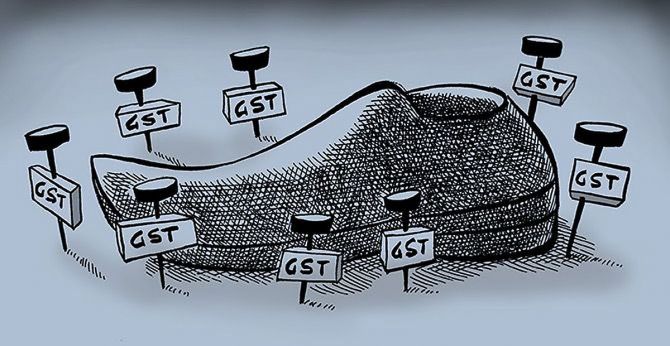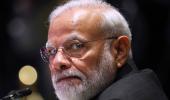This may leave those not opting for any of the two options offered by the Centre before the GST Council meet scheduled for October 5 in the lurch.

The Centre has received support from 21 states and Union Territories (UTs) for its offer of the Rs 97,000-crore Reserve Bank of India (RBI) window giving them compensation under the Goods and Services Tax (GST) regime.
This will help clear this proposal at the GST Council in case of vote.
The 21 states and UTs are Andhra Pradesh, Arunachal Pradesh, Assam, Bihar, Goa, Gujarat, Haryana, Himachal Pradesh, Jammu & Kashmir, Karnataka, Madhya Pradesh, Manipur, Meghalaya, Mizoram, Nagaland, Odisha, Puducherry, Sikkim, Tripura, Uttarakhand, and Uttar Pradesh (UP), said finance ministry sources.
The sources acknowledge that the GST Council needs only 20 states to pass any resolution in case voting is required, according to the GST Act.
This may leave those not opting for any of the two options offered by the Centre before the GST Council meet scheduled for October 5 in the lurch.
Sources said it is clear from the present situation that these states will have to wait till June 2022 to get their compensation, subject to the council extending the cess collection period beyond June 30, 2022.
On the other hand, there has so far been no taker for the Centre’s offer of borrowing by states to the tune of Rs 2.35 trillion, said sources in the Union finance ministry.
Manipur, the only state which had earlier opted for the option of borrowing by states, later preferred to change it to the RBI window.
A few more states are also to give their borrowing option in a day or two, said sources.
However, Jharkhand, Kerala, Maharashtra, Delhi, Punjab, Rajasthan, Tamil Nadu, Telangana, and West Bengal are yet to respond to any of the proposals.
Most of these states opposed the two offers given by the Centre.
The Centre has 33.33 per cent of total votes in the GST Council.
Each state has 2.22 per cent vote, irrespective of size.
This means that big states like UP and smaller ones like Goa enjoy the same percentage of voting power.
Seventy-five per cent of votes are required to pass any resolution.
So far, all decisions in the council have been taken on consensus, except for GST rates on lotteries.
The finance ministry estimated there would be a compensation requirement of Rs 3 trillion for states and the compensation cess would be around Rs 65,000 crore for the current fiscal year, leaving a gap of Rs 2.35 trillion.
Of this, Rs 97,000 crore is on account of the GST structure, the rest due to the lockdown to arrest the spread of Covid-19.
It offered two solutions to states.
The first is that states take a Rs 97,000-crore window, to be worked out with the RBI, or borrow Rs 2.35 trillion from the markets to be facilitated by the central bank.
The amounts will be paid by the compensation cess which will be extended beyond June 30, 2022.
However, states will have to bear the interest burden if they decide to borrow the entire Rs 2.35-trillion shortfall.
In case of the second option, the proposed extension of cess will be used for paying only the principal, not the interest.












 © 2025
© 2025